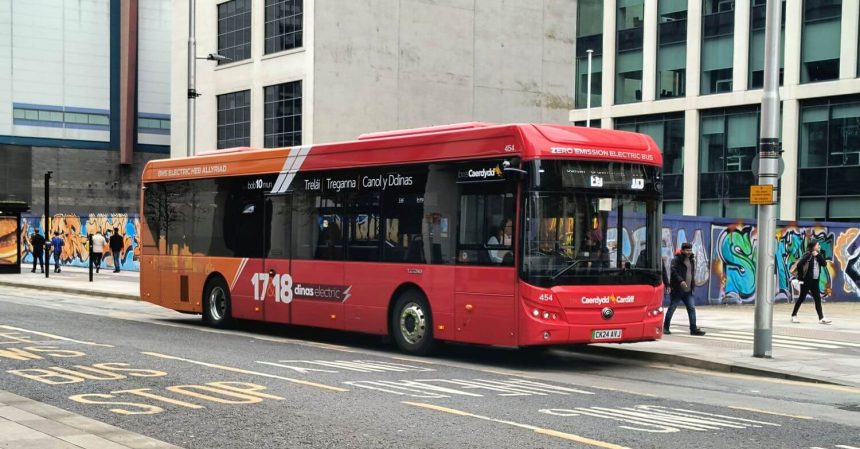Bus Users UK has “cautiously” welcomed the Bus Services (Wales) Bill, but its official response also airs concerns about how the franchised network will be funded.
The Bill, which was presented in the Senedd on 31 March, will lead to franchising right across Wales by 2030, if it is given the go-ahead.
The charity Bus Users UK, which campaigns on behalf of bus passengers, welcomes the six objectives of the Bill, which include increasing the availability of local bus services and improving their reliability, safety, affordability, and accessibility.
How franchised services will be paid for is one issue mentioned by Bus Users UK.
The feedback states: “The funding model for bus services in Wales requires an overhaul. The costs of operating services increase year on year due to wages, fuel, vehicle upgrades, etc.
“There is no evidence to suggest that franchising will reduce these costs.
“If passenger numbers are to increase by any significant margin, bus services must be quicker, more reliable and more accessible and this can only happen by introducing bus priority measures and reducing congestion.”
The feedback document adds: “There is nothing specific around consulting with passengers to determine what they want and need from a bus network in order to travel sustainably.”
It also notes the absence of a plan to tackle congestion. It further raises concern over the availability of funding to achieve the environmentally-linked objective within the Bill.
Bus Users UK welcomes the requirement for Welsh Ministers to review progress towards the objectives but says the planned time between these reports is too long. It wants to see the proposed reporting periods – two years at the outset and four years subsequently – halved.
Also highlighted is the lack of a mention of the requirement for an operator to have a complaints policy.
Initial support through the bidding process for SMEs and community transport operators may be needed, stressed Bus Users UK.
A statement from Bus Users UK reads: “According to Barclay Davies, Bus Users UK Director for Wales, the general principles of the Bill are potentially good news for passengers, as is the desire to improve services and put the interests of passengers at the heart of transport planning.
“While the Bill also commits to services that are accessible, available and affordable to more members of society, there is little mention of consultation with passengers and no assurances around funding.”



























